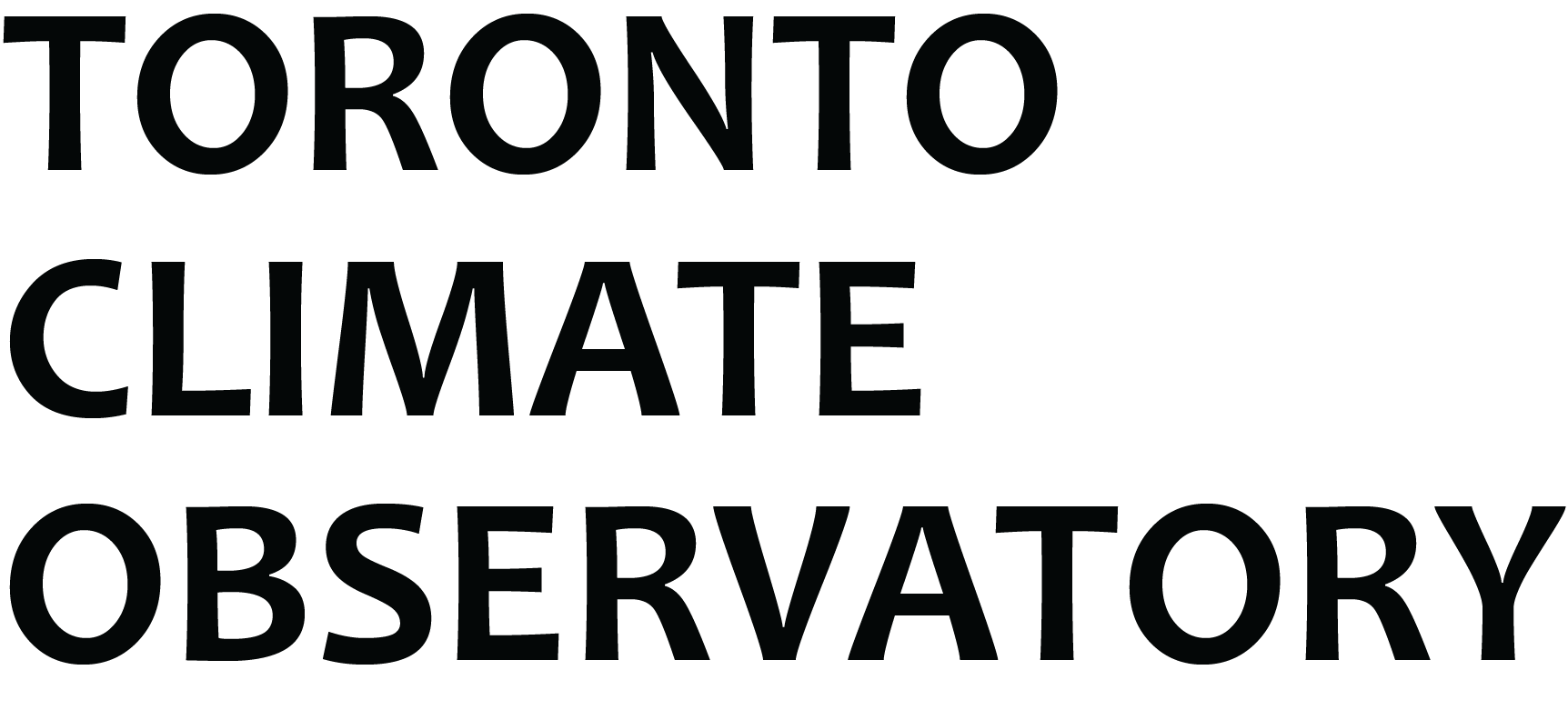
CLIMATE DATA PRACTICES IN THE
GREATER TORONTO AREA
This collaborative and multidisciplinary research project draws on practice theory as a tool for critically interrogating the role of data and information in in shaping how we know what we know about the ways in which climate change is impacting the Greater Toronto Area in the present, along with predictions for how this will accelerate in the future. We draw on a variety of methods including ethnographic fieldwork, interview studies, and document analysis to understand the role of data in the daily work and climate imaginaries of a range of publics, user groups, and communities across the region including youth climate activists, emergency managers, artists, transit planners, urban agriculture practitioners, and municipal governments. Thus project contributes climate data practices as a methodological approach that is suitable for helping to gain analytic purchase on these questions across a broad range of contexts. This is necessary to understand the contemporary knowledge politics of climate change, and to guide the creation of alternative information infrastructures that support place-based, plural, and just climate action.

EQUITY IN CLIMATE AND DISASTER RISK MODELING
Societal efforts to understand and mitigate threats posed by hazards such as earthquakes, floods, and climate change are informed by complex spatial risk models produced by experts from physical sciences and engineering. Despite decades of research that demonstrated the disproportionate effects of disasters on vulnerable groups, current approaches to risk modeling lack robust methods for taking such equity concerns into account. Differential disaster burden has been observed along wider axes of societal marginalization, including income and social status, age, race, gender, and disability. Increasingly, scholars are calling attention to the need for disaster and climate risk models to account for equity to better integrate these concerns into practice. This project brings together expertise in disaster and climate risk modeling, critical theory, and science and technology studies to achieve three objectives evaluate the extent to which equity and justice concerns are incorporated into current disaster and climate risk models, estimate the character and order-of-magnitude size of potential disaster and climate impacts that are being missed or mischaracterized through failure to account for equity issues in these models, and generate recommendations on how quantitative risk models for the region can incorporate equity in the future.

COMMUNICATING SEVERE WEATHER RISK
In Ontario, severe weather events are becoming increasingly frequent and intense, causing damage and disruptions in the places where they occur. People with visual impairments face significant barriers to receiving timely and instructive communications about risk and safety during severe weather events. Such information is necessary for “protective decision-making” – decisions that individuals and communities make in advance of and during disasters that impact their safety with regards to these events. Currently, authoritative weather risk communication in Ontario does not meet the needs of people with visual impairments. This two-year research project seeks to address the accessibility gaps that exist within the current disaster response measures and communication channels through design research into the needs, capacities, and constraints of people with visual disabilities in Ontario. Drawing on research design methods and inclusive design, the goal of this project is to develops a better understanding of these issues, and design and test communication strategies and technologies to alleviate them.

THE TORONTO CLIMATE SUMMER SCHOOL
The goal of this project is to develop and pilot curricular infrastructure for a six week full credit undergraduate course at the School of the Environment – University of Toronto. This is to fulfill a timely and unmet need for intensive pedagogy that foregrounds interdisciplinarity, applied impact, and climate justice. Combining elements of field courses, experiential learning, and research-based summer camps, this summer course will offer students training in research skills, experience with interdisciplinary research projects, and exposure to a wide array of research, policy, and practice domains drawn from the physical sciences, social sciences and humanities. The curriculum will include daily lectures, skill-based workshops, field visits, brown-bag lunches from UofT experts and community partners, and curated e-modules. In addition, each student will complete an independent research project advised by one of the TCO faculty.

EXPLORING MORE JUST ENGAGEMENTS WITH ENERGY MODELING FOR BUILDING RETROFITS
According to the Canada Energy Regulator (CER), buildings account for 26% of the country’s overall energy consumption, with other sources citing 40% as a more realistic number. Existing buildings will be inadvertently impacted by climate change in multifarious ways, and retrofitting requires long-term energy performance simulations that consider the future effects of climate change. While powerful, computational approaches to energy transition ignore the differential impacts of transition policies, including the need to consider trade-offs between what is just or good from an occupant perspective, and what is optimal from an energy transition lens. This project will investigate how a modeling-based approach to energy transitions can support more equitable participation and just decision making for building retrofits.

